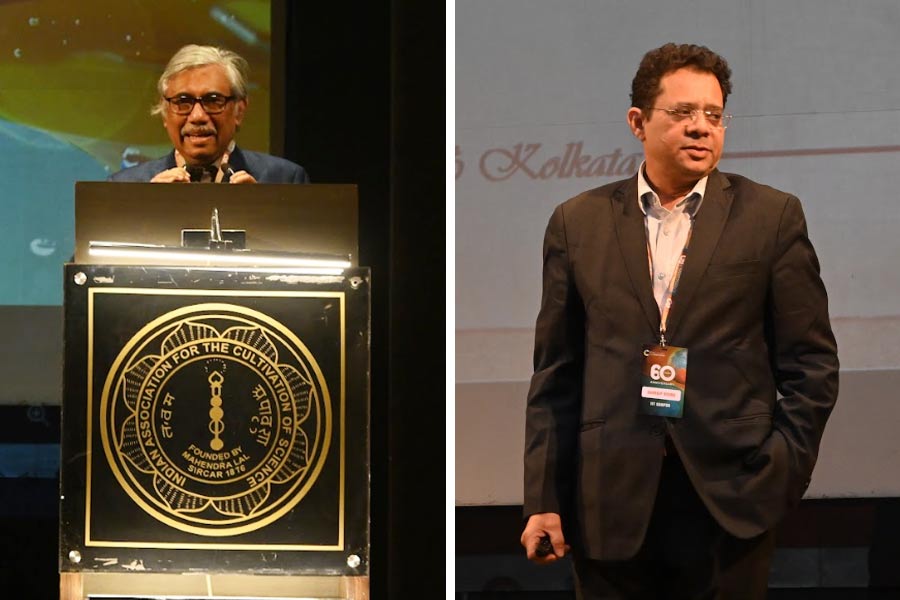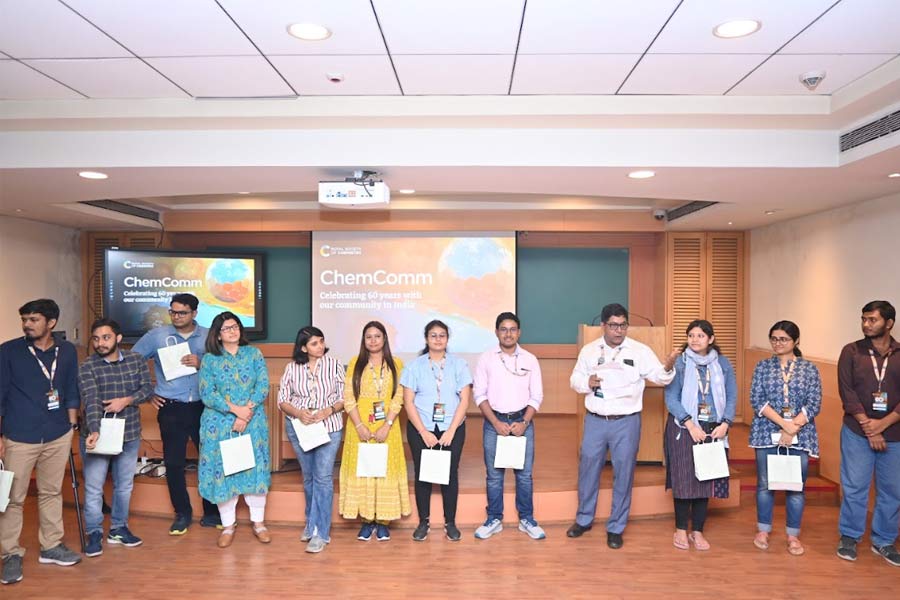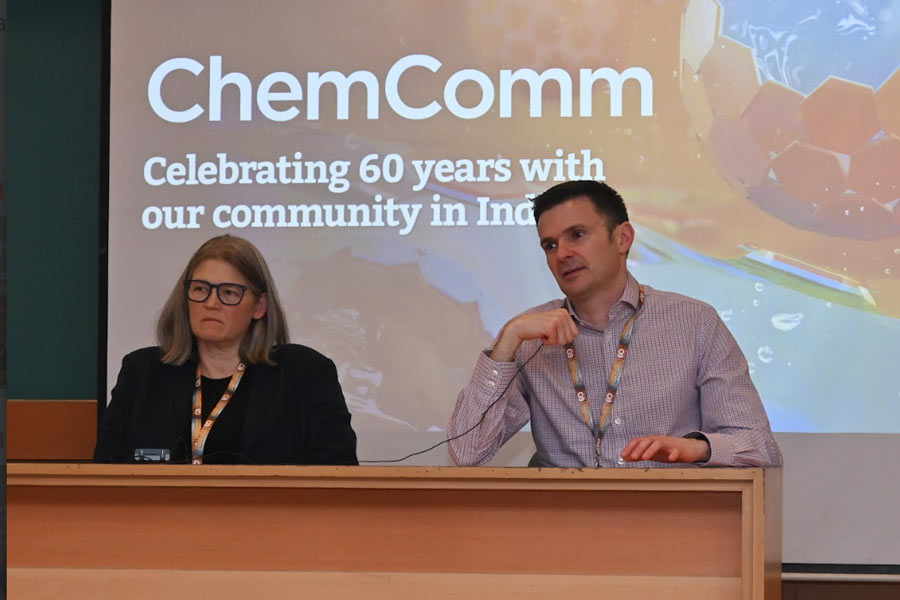The Royal Society of Chemistry (RSC) held its day-long 60th anniversary symposium for ChemComm, its most cited journal, at the Indian Association for the Cultivation of Science (IACS), Kolkata on November 22. Organised at the CV Raman Hall at IACS, this was the third and final event as part of ChemComm’s India symposia, with the first two taking place at IIT Madras and IIT Kharagpur, respectively.
The event was chaired by Prasanta K. Das, Somobrata Acharya and Pradyut Ghosh. The day’s proceedings began with an introductory speech by Arindam Banerjee, director, IACS. Founded in 1876 by Mahendralal Sircar, IACS is India’s oldest institute for basic science research. It currently has 67 faculty members and more than 400 research students and associates.
‘There’s a chance that many of our senior citizens could get neurodegenerative disorders’

Arindam Banerjee during his introductory speech and (right) Sandeep Verma
Research findings were presented at the symposium by Michaele Hardie, Biplab Maji, Jyotirmayee Dash, Sandeep Verma and Lutz Ackermann. Among other subjects of prevalent discourse in chemistry, themes like plastic waste and polymer recycling as well as emerging solutions in the field of neurodegenerative disease were discussed.
“Because of our demography in India, there’s a chance that many of our senior citizens could get neurodegenerative disorders. It’s imperative for us to keep finding newer solutions that would allow us to counter the neurodegenerative process, retaining and improving the cognitive functioning of senior citizens. Our strategies are now dealing with gaseous neuromodulators, which will have distinct effects on the neurodegenerative process,” said Sandeep Verma, associate editor, ChemComm, while speaking to My Kolkata.
“We’re very pleased to host the symposium on ChemComm’s 60th anniversary. In my experience of submitting to ChemComm, I have always found that they treat the manuscript with great respect, it always goes through the right reviewers. They also communicate their decisions regarding submissions in a short time, which helps in getting our work noticed by the community worldwide,” described Suhrit Ghosh from IACS, who played a key role in organising the event.
‘The number of publications from India has grown by 70 per cent’

Submissions from India to ChemComm have increased in each of the past three years
Richard Kelly, executive editor, ChemComm, was in attendance and spoke to My Kolkata about submissions from India: “We’ve seen more submissions and more publications from India every year over the past three years. The number of publications from India has grown by 70 per cent. It’s great to see such support and trust in the journal from Indian researchers.” Kelly also shed light on the areas of focus for ChemComm: “Our speciality is publishing short, exciting reports. We cover a broad range of topics in chemistry, including research on the interface of chemistry and other disciplines like biology, materials, physics, among others. Although publishing has changed a lot over the past six decades, ChemComm remains one of the most trusted journals in chemistry.”
“What better way to conclude the week-long celebration of 60 years of ChemComm than to be at one of the oldest research institutes in the country?” smiled Aparna Ganguly, editorial development manager, RSC India “We’re delighted with the success of the event and are looking forward to engaging more with institutions in Kolkata in the future,” she added.


